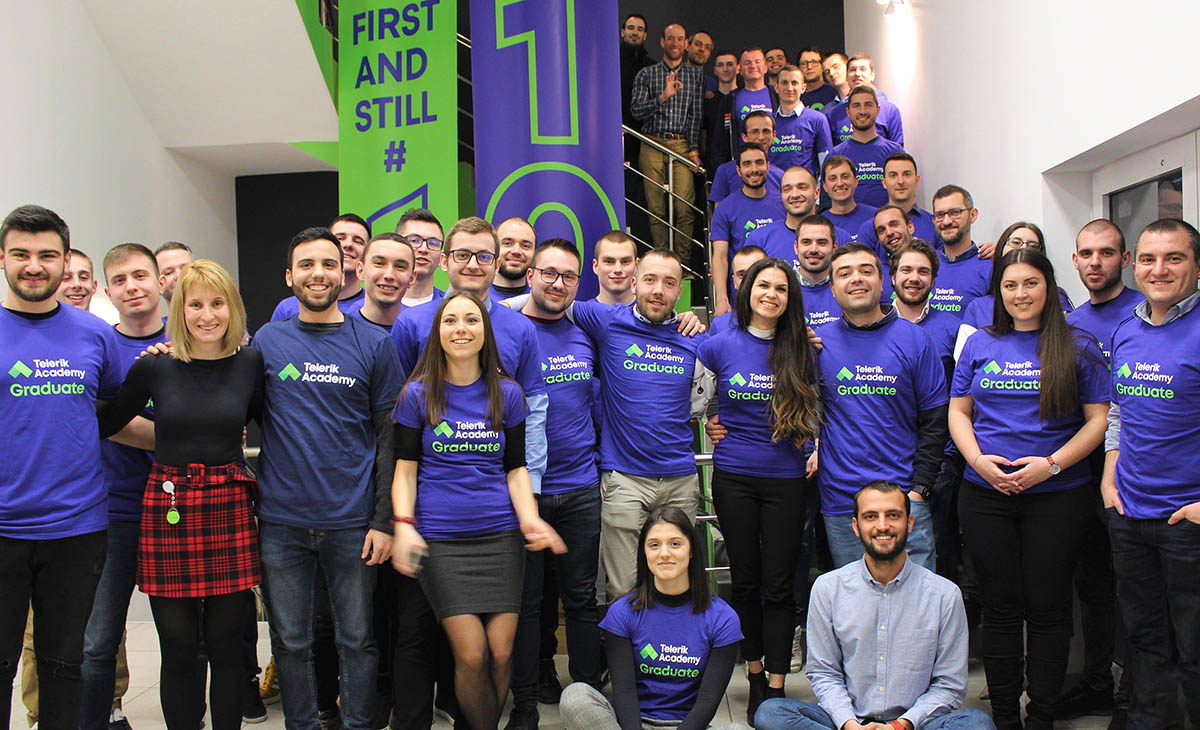



The spread of coronavirus affected the way millions of people work and study. The change in their daily lives came swiftly - in a matter of days. This was the right thing to do and while the well-being of employees and students remains the utmost priority, the quarantine can be stressful for some people. That’s why we decided to share some of the daily routines that help us stay productive.
Alarm. Study/Work. Eat. Study/Work. Eat. Sleep. Repeat.
Maybe this sequence is close to your daily routine for the last three weeks since the Bulgarian government declared a state of emergency due to the coronavirus outbreak.
We know that home isolation can be challenging, but if you manage to utilize your time, you can turn a difficult situation into an opportunity. No matter if you are still in university, you have a full-time job that lets you work from home, or you are isolated with nothing much to do.
Remote work is becoming more popular and accepted as a practice within the technology industry. Some of our alumni share that the opportunity to work remotely is one of the many reasons they decided to apply to our Alpha programs and jumpstart their IT careers. When you work from home, you can be more productive, you have more time to learn new things, you don’t travel every day, and you can feel more fulfilled.
But we know that studying and working from home can have some negative sides as well. Let’s start with the obvious - if you are not used to working or learning from your home, this transition could be quite stressful. And let’s not forget how difficult it may be to mentally distance yourself from your work or studies.

This may seem like a comfortable thing to do but it is counterproductive and it's bad for your posture
Furthermore, our homes are full of bad habits that we can fall into - distractions, snacks, procrastination, the ever-tempting bed, and the mentality that you are home and you can stay in your PJs the whole time. This could leave you feeling down mentally and physically.
The next steps will help you deal with the negative side of working or studying from home and help you be more productive.
You must be able to switch from free time to work/study mode. Usually, it is hard to do it without leaving the bed. It’s not necessary to have a whole room dedicated only for work, it is enough to have a small part of a table.
What about the schedule? The fact that you are working or studying from home doesn’t mean that you must spend the whole day in front of the computer. Take intermissions, have a lunch break. Use your small breaks through the day (5-10 minutes) to go outside on the balcony, or to do quick stretches.

Don’t neglect your work with classmates or with your colleagues. Of course, don’t do it in person but instead, leverage the power of technologies. Remember the popular idea that technologies are splitting us apart? Well, in the current situation, they are helping us bridge the distance.
Another important part of your schedule is your bedtime. The quality of your sleep is essential for your physical and mental health. Don’t short yourself out of sleep but also don’t spend all day in bed. Also, try to keep your wake up time constant.
Try to sit down and work through any projects as consistently as possible. It is important to limit all of the distractions. If you don’t live alone, tell your family members, roommates, and friends that your classes or work need serious attention. Start the day with a to-do-list and keep up with it.
The Pomodoro technique is a great way to stay focused, without losing track of time. You set up a timer for 25 minutes and focus on a single task, after which you get a five-minute break. You can use an app, the timer of your phone or even a kitchen timer (from where the name of the technique comes from). We found out that even a web version can be quite useful.

Don’t let studying or working take up your whole time. Don’t rush headfirst into every task - give yourself time.
Keep interacting with your classmates or colleagues - not only on class-related or work topics. Don’t neglect the chit-chat that you would usually have at the office or the school. Tools like Slack are great for keeping open channels of communication but don’t forget about picking up the phone and calling or video chatting.
For example, we do team lunches or coffee breaks within Microsoft Teams. This is a small portion of our day when we don’t talk about work but rather just chit-chat on different topics with our cameras turned on. You have no idea how refreshing and helpful this is. We can call it the virtual version of the water cooler talk.
If you follow these simple rules, you will be more productive at home, and you will have more free time.
So, the next important question is how you utilize this newly acquired time. The answer is:
In a little over a decade, we’ve changed the lives of more than 130,000 people (kids and professionals) in Bulgaria. Many of them have made their first steps into programming and launched a successful IT career with our Telerik Academy Alpha programs. So, yes, we believe in the importance of personal growth and that nothing is impossible if you put your mind to it.

Learn a new skill that will help you kickstart a new career - at Telerik Academy, we believe that everyone, who has the motivation and dedication, can kickstart a successful IT career . But we know that changing your career path or starting a new one straight from school can be a daunting experience.
That is why we have developed our Alpha programs in a way that they equip you with the most in-demand tech and soft skills in just 6 months, so you can start working in the IT sector.
If you are thinking about this possibility, our programming fundamental courses are free. Find them here and start learning. They are carefully selected and structured by our experienced trainers with the idea that you have little to no previous knowledge in programming.
They give you everything that you need to know in one place and will help you gradually develop programming skills. On each stage, there is a test for safe-evaluation.
Well, this is the most obvious one. You can use the time to become a better professional and build upon your knowledge. You can try online courses like LinkedIn Learning (they offer a free month), or use platforms like Skillshare. This way you can fill some of the gaps in your knowledge. The best way to upskill is to go through a more extensive course from professionals such as our Upskill programs.
And never forget:
Never forget to keep your mind open for new ideas and inspiration. You can watch Ted Talks on YouTube, read Medium, or just follow the people who you admire as professionals.
Read success stories of people who overcome their fears and shortcomings to achieve their goals. Check the success stories of some of our alumni or learn how some of the most famous entrepreneurs who started successful careers and now are helping others to grow.
Don’t forget to read books. Usually, the excuse is that we don’t have enough time to do it, but now you can squeeze a couple of hours weekly for reading.
We hope that with our guidelines you will make the most of a difficult situation. There is a quote from John F. Kennedy that we want to finish with:
“The Chinese use two brush strokes to write the word 'crisis.' One brush stroke stands for danger; the other for opportunity. In a crisis, be aware of the danger but recognize the opportunity.”
Seize the opportunities ahead of you. Apply to Telerik Academy Alpha.
.jpg?sfvrsn=25bcb8fb_2)
With diverse backgrounds and a commitment to continuous learning, their stories provide valuable insights into the benefits of upskilling and entering the dynamic field of product management.
Read the story.jpg?sfvrsn=f8c304b0_2)
Both graduates of Telerik Academy's Upskill DevOps program, Teodor and Victor share their experiences and how the program has impacted their careers.
Read the story
Launching a new product? What about leads? How to be successful with a new unknown brand, having a limited budget and operating in a competitive market?
Read the story